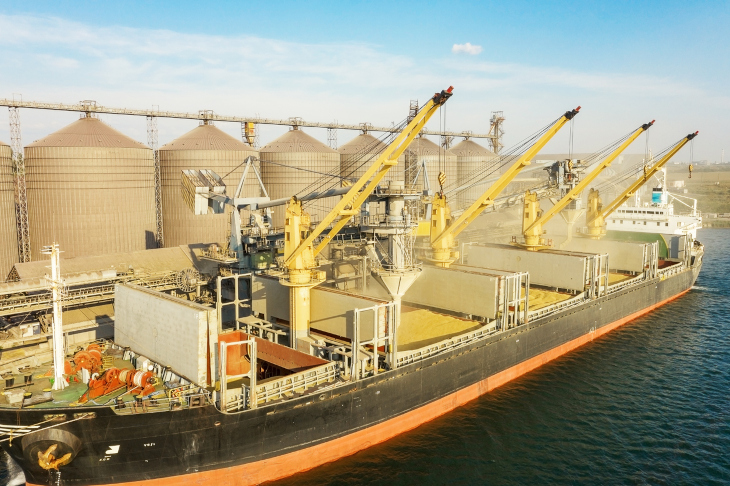Ukraine: Agreement to export Ukrainian grain from Black Sea ports unlikely to significantly reduce high food prices

Event
On 22 July, Russia signed an agreement to resume Ukrainian grain exports from the Black Sea ports. Under the agreement, a coordination centre staffed by belligerents, Turkey and the UN would monitor cargo ships transiting Ukrainian ports and inspect them for weapons. The agreement is to be renewed every 120 days. The grain deal brokered by Turkey and the UN was directly jeopardised by an attack on the port city of Odesa on 23 July. Despite the recent strike, the implementation of the deal is moving forward as shown by efforts to demine arears for maritime traffic.
Impact
The resumption of grain exports would support the Ukrainian economy by providing badly needed hard currency. Indeed, food exports accounted for almost 30% of current account receipts in 2020.
On a larger plan, an effective implementation of the grain deal would alleviate the risk of a global food crisis. Indeed, despite the recent ease (cf. graph), food prices have soared following Russia’s invasion of Ukraine seeing that both countries are major grain exporters.

Apart from its devastating humanitarian impact, the sharp increase in food prices is a source of concern for two main reasons. First, it is adding to already high inflation pressure worldwide, along with other factors such as the supply chain disruptions and the very high price of other commodities (notably energy prices). High inflation is weighing on consumer confidence and hence on economic activity. To stem inflation pressure, many central banks worldwide are rising their policy rate. Along with the tighter monetary conditions – notably in major economies such as the US and the euro area – global financial conditions are deteriorating rapidly. This is putting pressure on the exchange rate and foreign exchange reserves of many economies amid notably capital outflows from emerging markets. Moreover, it implies that some emerging markets – such as Kenya and Ghana – with very weak fundamentals (e.g. high public debt and large twin deficit (= current account deficit and fiscal deficit)) no longer have access to international markets to issue new debt or refinance existing debt. Moreover, borrowing costs are increasing rapidly for the public and private sector alike as access to credit is becoming more restrictive. This happens as in some countries public debt is still very high despite some fiscal consolidation measures implemented last year. Last but not least, the high food prices weigh on public finances if the authorities decide to put in place fiscal measures aiming at alleviating the impact on high prices.
The second source of concern is related to the heightening risk of social unrest. Across the world, protests are erupting to complain about the high cost of living (e.g. Kazakhstan, Peru, Pakistan, Sri Lanka). This trend is likely to continue in the coming months, raising the political risk in an environment where uncertainty is already very high.
In this uncertain context and amid a fast deterioration of the economic environment, Credendo is likely to downgrade the business environment risk and political risk of additional countries in the coming months.
Analyst: Pascaline della Faille - P.dellaFaille@credendo.com